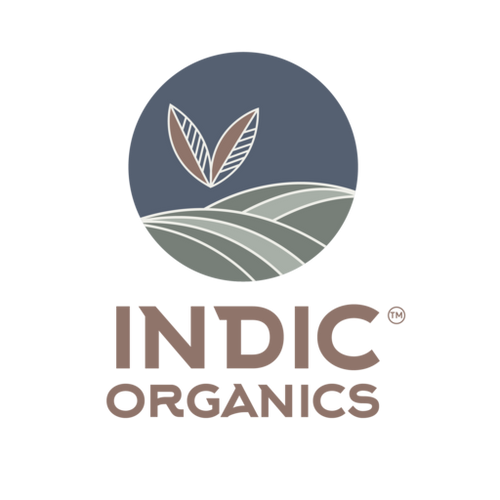Joint pain and Bone health
Joint pain and bone health issues are quite common these days. Amongst which, knee pain is the most heard of ailment of which we are in search of measures to tackle it efficiently. Not denying, at some point we have ignored the problem hoping it to mend by itself. This won’t help as pain will only get severe as time flies. It is better to take preventive measures beforehand and nip the problem in the bud so that it doesn’t grow in severity.
Who are more prone to it?
- Senior Citizens & elderly people due to lower lubrication in their knee joints
- Postmenopausal women
Reasons for the issue
Major reasons for Joint Pain are mainly 2 fold
Osteoporosis and Arthritis. (1) (2)
When calcium gets drained out from the bones, it results in Osteoporosis (2), which technically means the porosity of the bones. Arthritis is when there is inflammation in joints. Stiffness of the bones is the major cause of this. (1)
Postmenopausal women are more prone to disorders like Osteoporosis. Oestrogen being the primary reason for it, lack of calcium and Vitamin D intake also contributes to this. (3) This does not mean that men won’t experience lack of calcium. They might not experience at an earlier stage in life, but are prone to issues later in life, as compared to women. Apart from this, children who lack Vitamin D and Calcium are said to develop a condition called rickets, which results in the weakness of the bones. (4)
As already stated, Osteoporosis is caused when calcium gets drained out from the bones. We all know how important is calcium as a mineral for human body in order to maintain strong bones. But it is not produced by our body. Hence, it should definitely come from the foods that we consume. (2) While most of these problems are caused due to poor intake of Calcium Rich foods, some people have problem of calcium absorption from their diet. This is caused when the body is unable to absorb calcium and assimilate it.
This is where Desi Cow’s A2 Ghee comes into picture
How can our Malnad Gidda A2 Ghee help you get rid of this?
‘Malnad gidda A2 ghee’ is rich in Vitamin K2 which has a specific quality of absorbing calcium from other foods in the diet. This is one side of the aspect. But as per Ayurveda, this Cow’s A2 Ghee has a certain quality called ‘Snighda’. This nature of the A2 ghee has a property to nourish the joints and increase lubrication between them. It basically imparts vitality to the body as a whole increasing vigour and strength.
Another aspect of the A2 Ghee is to do with a specific component called Linoleic Acid. This component has strong anti-inflammatory properties (1). With a strong Anti-inflammatory property combined with rich Vitamin K2 content, this A2 Ghee can work wonders for people who suffer from chronic joint pains
Hence, regular consumption of Malnad Gidda Cow’s A2 Ghee, by making it part of your diet will aid in keeping your bones and joints healthy.
Who can consume our product?
People from all age groups can consume this A2 Ghee.
References
- Sanjay Kumar Gupta, Anup B thakar, Tukaram S dudhamal and Aditya Nema – “Management of amavata (rheumatoid arthritis) with diet and Virechanakarma.” 2015 Oct-Dec; published by AYU (An International Quarterly Journal of Research in Ayurveda)
- Pilar Matia-Martin, Macarena Torrego-Ellacuria, Angelica Larrad-Sainz, Cristina Fernandez-Perez, Federico Cuesta-Triana and Miguel Angel Rubio-Herrera- “Effects of Milk and Dairy Products on the Prevention of Osteoporosis and Osteoporotic Fractures in Europeans and Non-Hispanic Whites from North America: A Systematic Review and Updated Meta-Analysis.” 2019 May; published by American society for Nutrition 2019
- Ha Young Kim, Joo-Yeon Hwang, Bok-Ghee Han, Jong-Young Lee, Eui Kyun Park, Beom-Jun Kim, Seung Hun Lee, Ghi Su Kim, Shin-Yoon Kim and Jung-Min Koh- “Association of ADIPOR1 polymorphisms with bone mineral density in postmenopausal Korean women.” 2012 June; published by the Korean society for Biochemistry and Molecular Biology
- Moroam T Chibuzor, Diepiriye Graham-Kalio, Joy O Osaji, Martin M Meremikwu- “Vitamin D, calcium or a combination of vitamin D and calcium for the treatement of nutritional rickets in children.” 2020 April; publishes by John Wiley and sons,Ltd.
- Zeyad Khalil, Benyamin Alam, Amir Reza Akbari and Harbans Sharma- “The Medical Benefits of Vitamin K2 on Calcium Related Disorders.” 2021 Feb; published online by the autors
